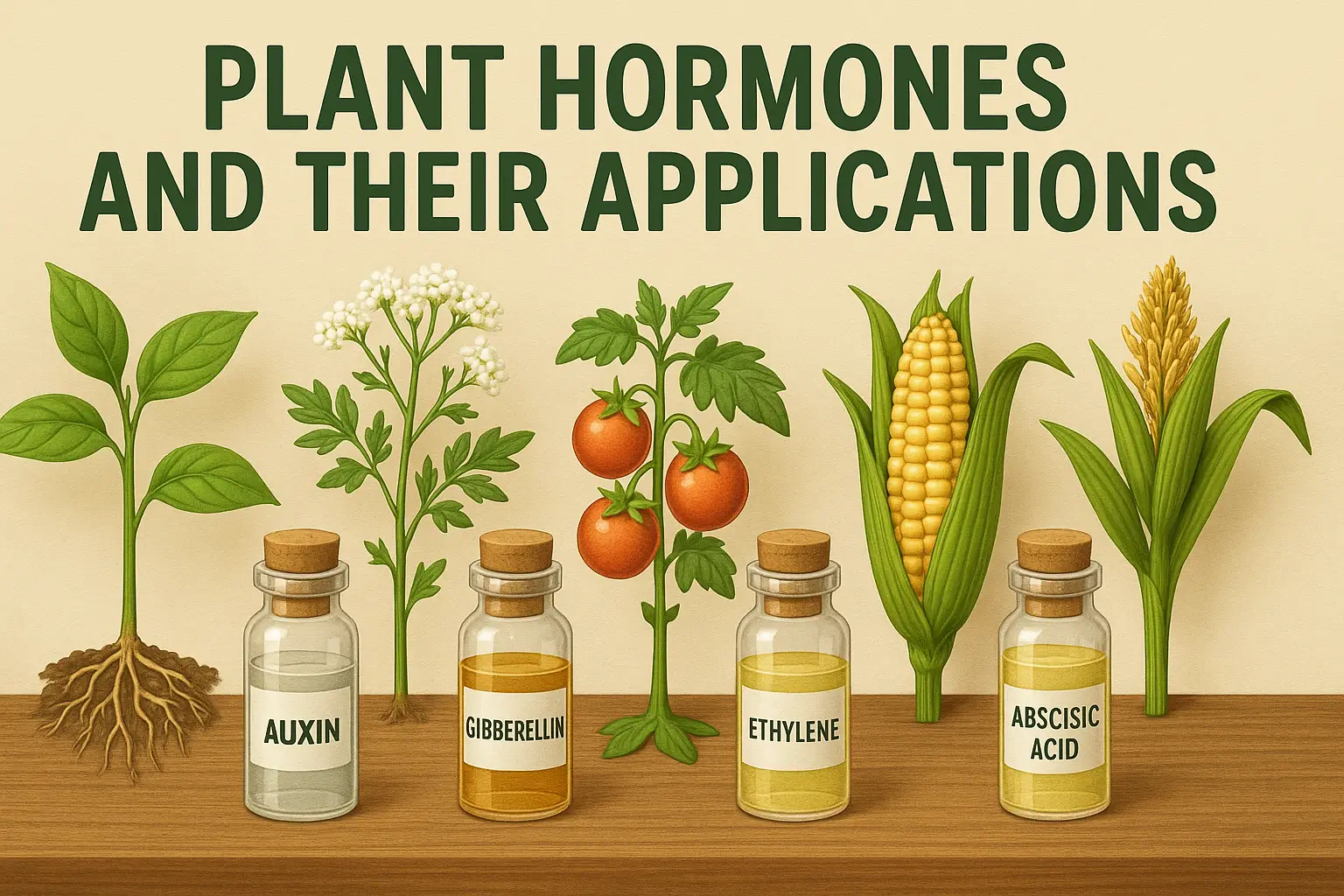- Plant Hormones and Their Applications involve regulating growth, development, and stress responses in plants.
- Plant Hormones and Their Applications boost yield, improve quality, and aid in crop management and propagation.
Introduction to Plant Hormones and Their Applications
- Plant hormones (phytohormones) regulate growth, development, and stress responses.
- In pharmacognosy and phytochemistry, they enhance medicinal plant yield, secondary metabolite production, propagation, and tissue culture.
Types and Applications
-
Auxins
- Function:
- Promote root growth, cell elongation, apical dominance, tropism, and callus formation.
- Applications:
- Root induction in Aloe vera, Rauwolfia serpentina
- Enhances alkaloid production (Catharanthus roseus)
- Propagation of rare medicinal plants (Rauwolfia serpentina)
- Function:
-
Gibberellins (GA)
-
Cytokinins
- Function:
- Promote cell division, delay aging, and improve nutrient transport.
- Applications:
- Micropropagation of medicinal plants (Neem, Curcuma longa)
- Enhances bioactive compounds (Ocimum sanctum)
- Function:
-
Abscisic Acid (ABA)
- Function:
- Regulates seed dormancy, drought resistance, and stress metabolism.
- Applications:
- Strengthens medicinal plant stress resistance (Aloe vera)
- Increases antioxidants in Camellia sinensis
- Function:
-
Ethylene
- Function:
- Controls fruit ripening, leaf senescence, and root formation.
- Applications:
- Regulates bioactive compounds (Papaver somniferum)
- Increases latex yield (Hevea brasiliensis)
- Function:
Click Here to Watch the Best Pharma Videos
Advertisements

